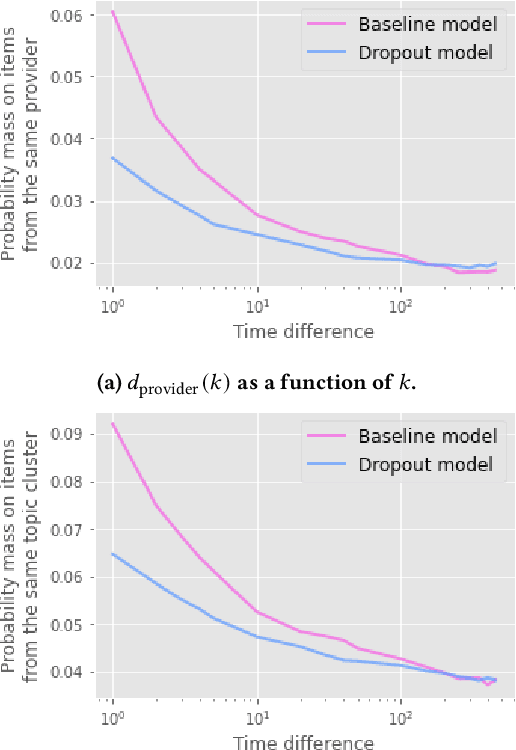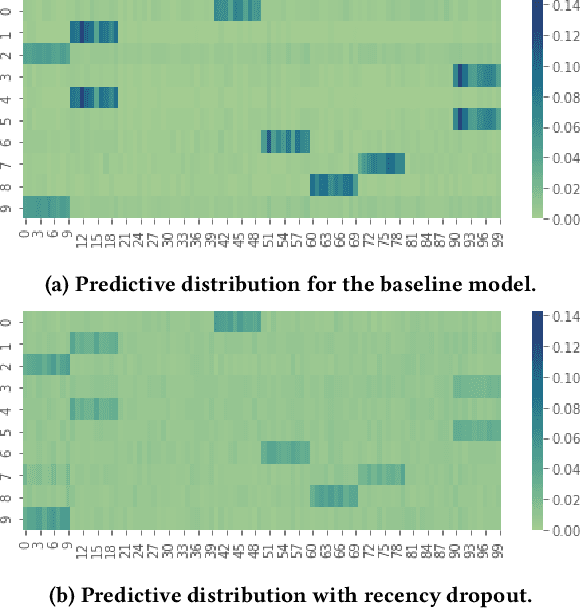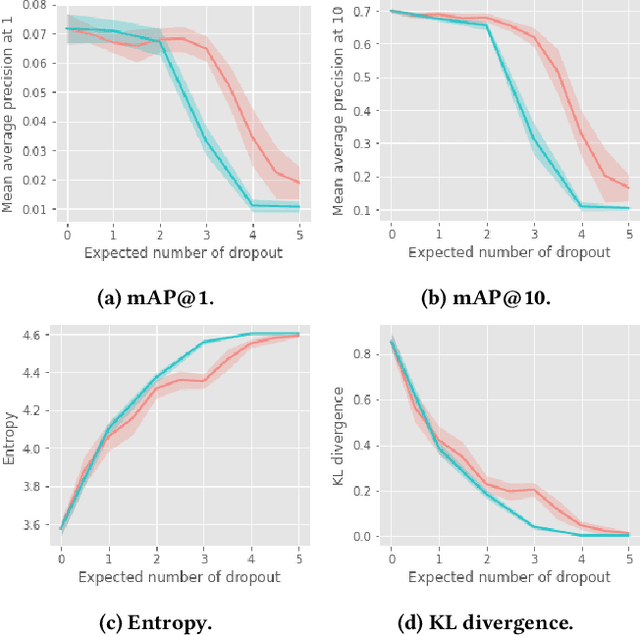Recency Dropout for Recurrent Recommender Systems
Paper and Code
Jan 26, 2022



Recurrent recommender systems have been successful in capturing the temporal dynamics in users' activity trajectories. However, recurrent neural networks (RNNs) are known to have difficulty learning long-term dependencies. As a consequence, RNN-based recommender systems tend to overly focus on short-term user interests. This is referred to as the recency bias, which could negatively affect the long-term user experience as well as the health of the ecosystem. In this paper, we introduce the recency dropout technique, a simple yet effective data augmentation technique to alleviate the recency bias in recurrent recommender systems. We demonstrate the effectiveness of recency dropout in various experimental settings including a simulation study, offline experiments, as well as live experiments on a large-scale industrial recommendation platform.
 Add to Chrome
Add to Chrome Add to Firefox
Add to Firefox Add to Edge
Add to Edge